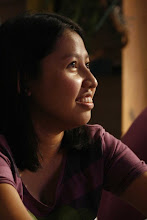Yentl was on this afternoon at the MGM channel. I think few will know what the movie Yentl is all about or who Yentl is, for that matter.
The movie is a bit old. According to Wikipedia, Yentl premiered on November 16, 1983 (I was three years old then). It is a period film taking off at time most people would probably wish to forget, if not forgotten. Plus it is set in a boring town where people were too conservative, they almost dress alike, not to mention they themselves look almost alike. (Let it be said, however, that the film did well in its time, even winning an Academy Award for Best original score and a Golden Globe Award for Best Motion Picture, Musical or Comedy.)
To sum up the story, the movie is about a girl named Yentl (played by Barbra Streisand) who—despite living in an old-fashioned Jewish town that believed that the main requirement for receiving education is testosterone, lots of it—was raised with books and the passion to learn, thanks to her dad who unfortunately dies at the early part of the movie leaving poor Yentl in the dark and forever sentenced to being the typical woman; ergo submissive, uneducated and voiceless. Being that “girl power” is unheard of in their time, Yentl uses “guy power” to pursue the education deprived of her on the grounds of having the “wrong” genitalia. She cuts her hair, binds her bumps and dresses up with her dad’s clothes. (Well, where else could she have gotten her guy wardrobe?) Then she heads off to a new town where no one would know that she is just pretending to be a boy. (If she grew mustache and beard, she’d be pretending to be a man. But her face was as smooth as a baby’s.) She meets the dashing Avigdor who, despite being smart and all, had no idea she was a girl. Perhaps Yentl, changing her name to the masculine name, Anshel, made it impossible for Avigdor to doubt Yentl/Anshel’s sex.
So Avigdor and Anshel get along and become the best of friends. So much so that when Avigdor’s engagement to Hadass (the only glamorous character in the movie) was dissolved by his supposed future father-in-law, he forces Anshel to marry Hadass for him. And since Anshel/Yentl has fallen head over mules in love with Avigdor, she does what Avigdor demmands and marries Hadass. (Not very smart of her.) Anyway Hadass is the typical woman—submissive, uneducated and voiceless—Yentl refused to be. It only took little effort for Anshel/Yentl to delay consummating her marriage with Hadass without having to admit that she (who was pretending to be a “he”) didn’t have the thing Avigdor and guys like him have. Finally, Anshel/Yentl comes up with a plan: take a long trip with Avigdor and confess her secret when they’re all alone. At first Avigdor thought Anshel was kidding, but then he/she unveils her bumps. Viola! Avigdor's Ex-fiancé’s husband is a girl! Now that explains why Avigdor himself felt a bit gay when his and Anshel’s eyes would meet while they go tickling each other in the school grounds. Avigdor and Yentl profess their love for each other and begin planning their future. But Yentl takes a step back when Avigdor suggests that Yentl grow her hair back and study inside the house with locked doors and closed shutters. She is not too keen on the idea of being domesticated and having limited access to learning. In the end, they agree to part ways and keep in touch. Yentl gives her blessing to Avigdor to go and pursue her wife, Hadass. By this time Hadass is no longer a hundred percent submissive, uneducated and voiceless (thanks to their tutorial sessions which they did instead of doing what newlyweds do), she can defend her love for Avigdor to her disapproving father. Avigdor and Hadass get together; they might have gotten married. Anyway Hadass’ marriage to Anshel was null and void on the grounds that her husband, Anshel, was a girl. Meanwhile, Yentl boards a ship to, I guess, the US where she can come out of her closet, be the woman she truly is and study like she hasn’t studied before.
Whew.
Yentl is the perfect movie to show girls who enjoy the privilege of going to school, especially those girls who have the luxury to attend good schools. It kind of reminds them that not all people are as lucky they are. My high school English teacher must have the exact thoughts when she forced us to watch this film. Thus explaining why I know Yentl.
I don’t know how I did with my compulsory reaction paper for this film, being that back in high school; I suck at writing—big time! But I know that even if I almost had a Barbra Streisand-overdose through Yentl, the movie's theme has seeped through my subconscious and presently plays a lot on my feminist view on things. Lucky for me and the rest of womankind, we live in a time when wanting more and attempting to spread one's wings is no longer considered taboo.
Barbra Streisand best exemplifies the essence of the film by being the director, producer, and (treatment) story writer, apart from being the star who plays 2 different characters—well one character with two names. Proved that just like Yentl, she can be a woman who does lots of substantial things. (Whether she's good at all the fields she pursues is yet another story.)
I have to admit however that my classmates and I were snickering when the closing credits rolled because of the number of times Streisand’s name appeared as part of the production, connoting “epal-ness.” (It’s like hearing: "Starring Ronnie Rickets, directed by Ron Rick." Nyek!)
Oh, one famous song that came out of Yentl is Papa. This I’m sure lots of people know.
Sunday, November 9, 2008
Yentl…Lentil—What’s the Difference?
at
11:41 PM
![]() compartments
From the Couch Potato
compartments
From the Couch Potato
Subscribe to:
Post Comments (Atom)
















No comments:
Post a Comment